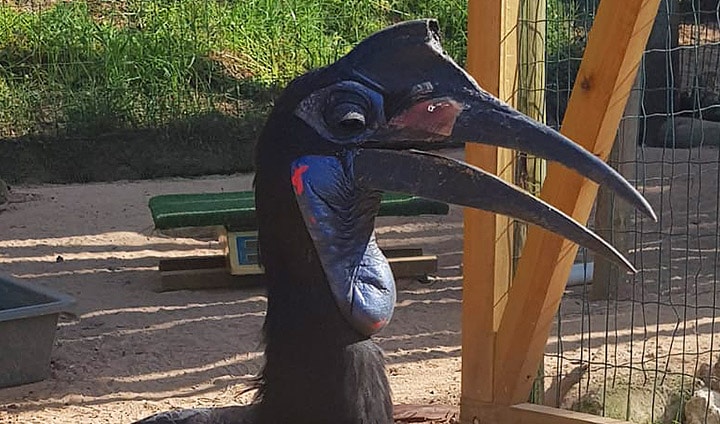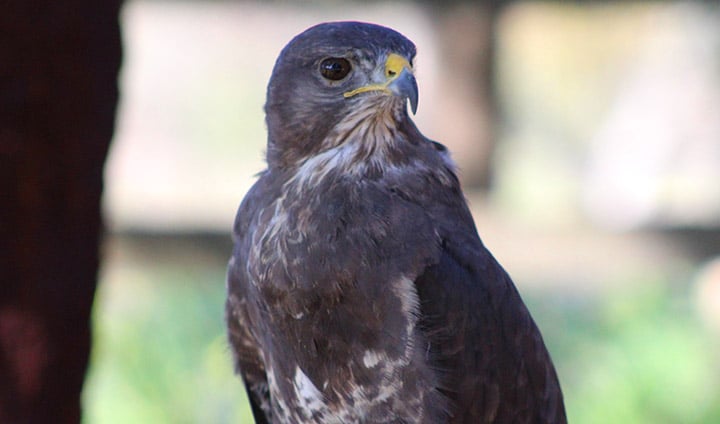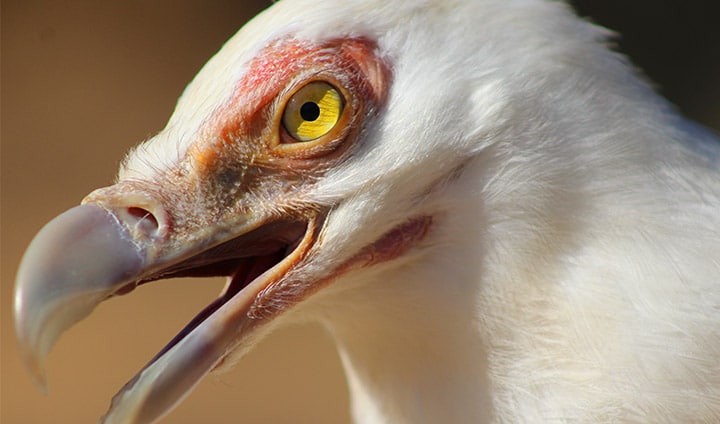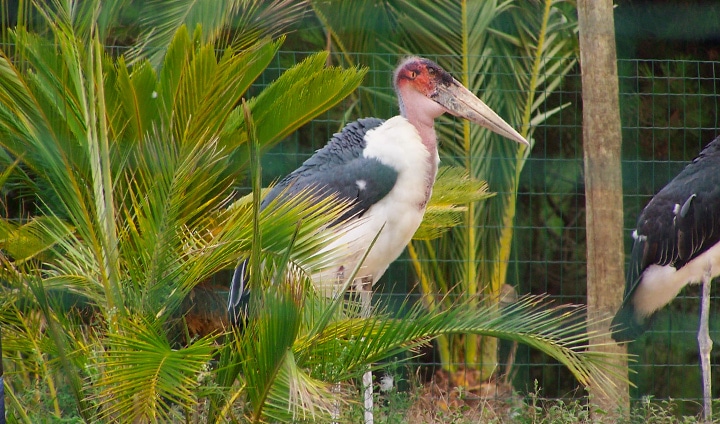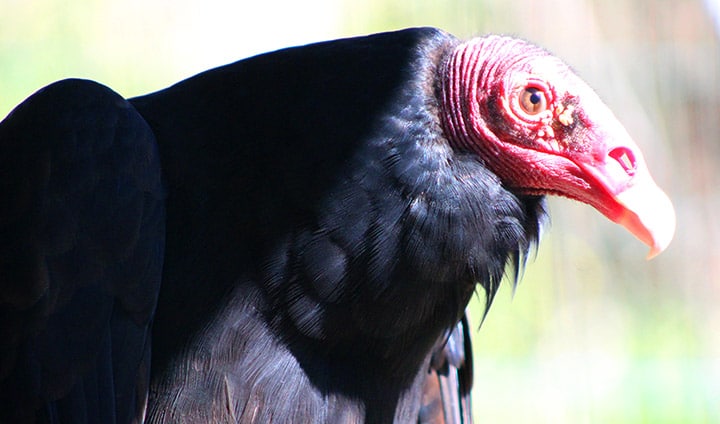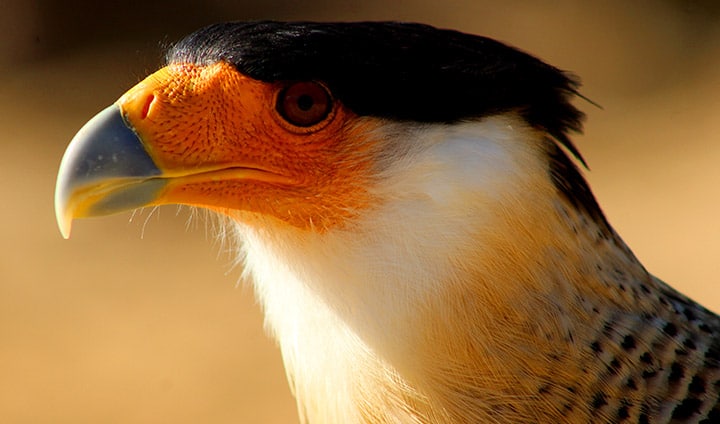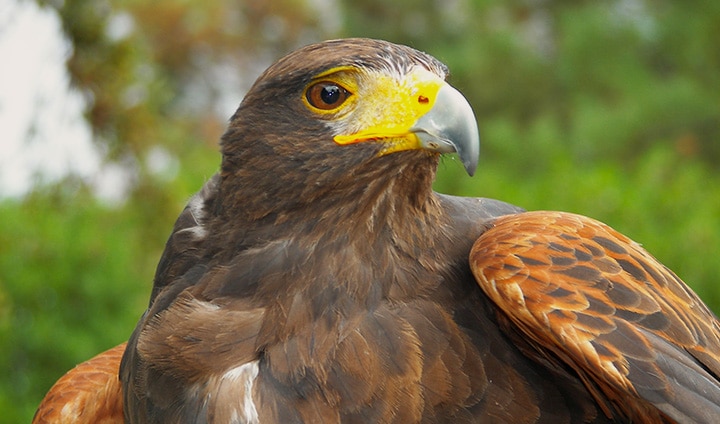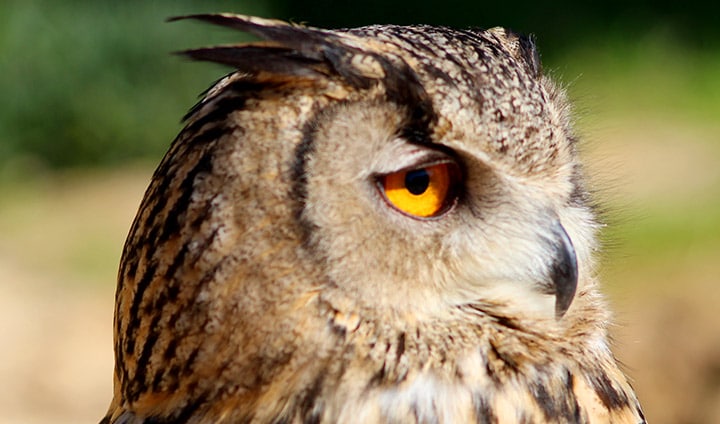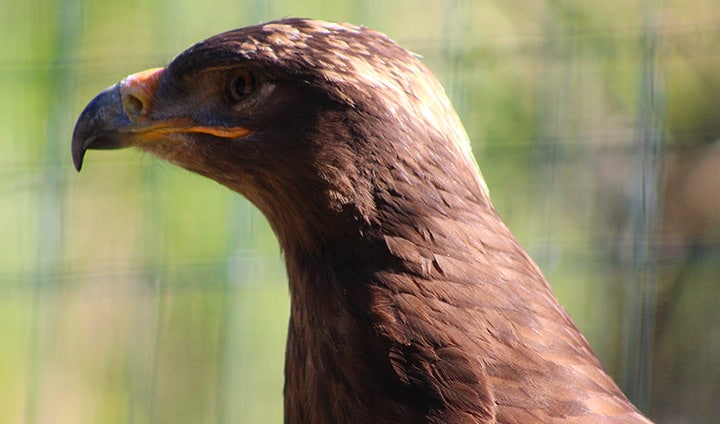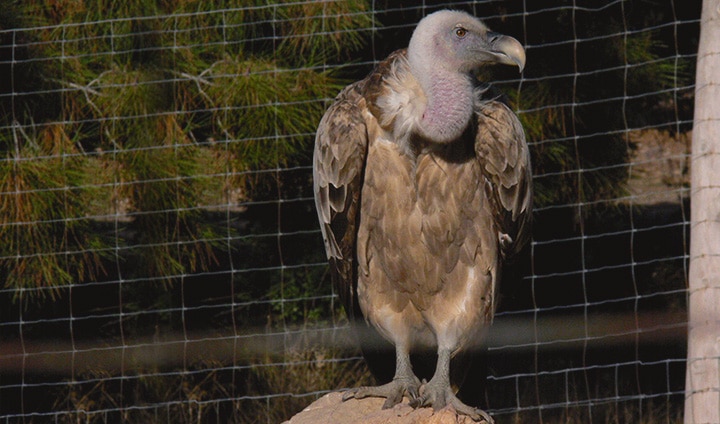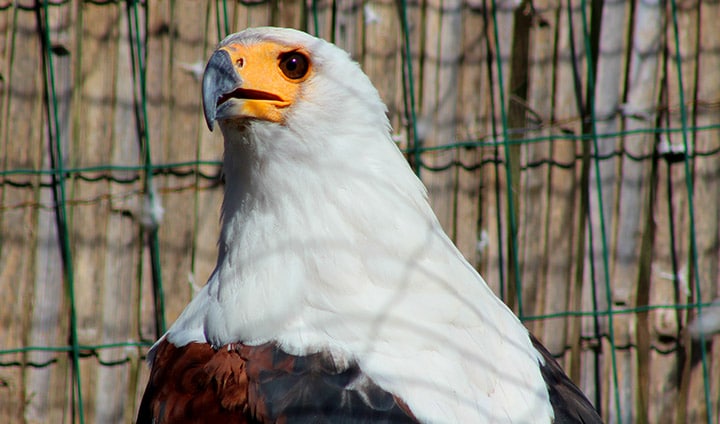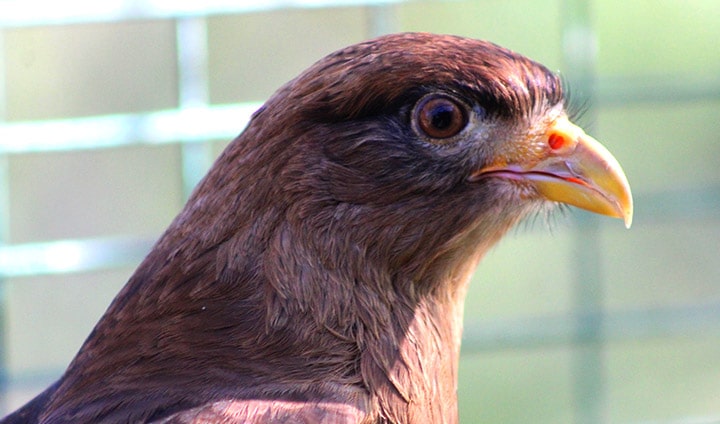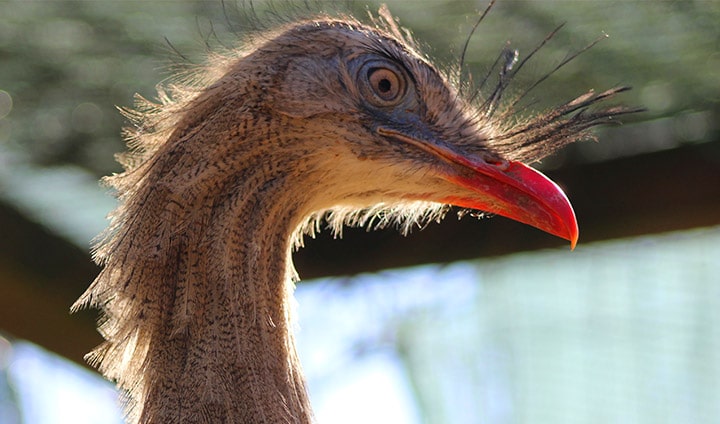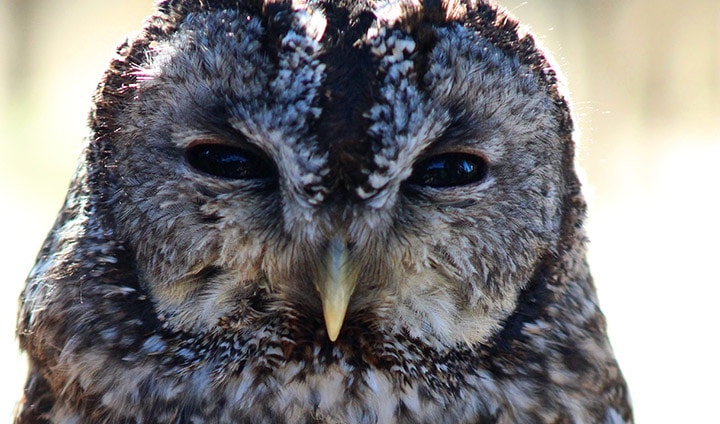Habitat and Geographical Distribution: Rocky areas such as cliffs and mountain peaks, meadows, forests and savannahs. Africa – from Senegal, The Gambia and Mauritania in West Africa to northern Kenya, Uganda, Eritrea, Ethiopia and north-western Somalia.
Diet: Mostly carnivorous. Feed on reptiles, including snakes, turtles and lizards, mammals such as hares and rabbits, and insects and arachnids. Can also feed on vegetable matter, although this is unusual.
Reproduction: Nest usually built in cavities of large trees, but can also nest in rock cavities. The nest is prepared by the male, lining the cavity with dry leaves. Lay 1-2 eggs that are incubated for 37-41 days. After 21-33 days the female leaves the nest in order to help the male with the provision of food. Chicks fledge after 80-90 days.
Behaviour: Mostly terrestrial, although will fly to capture prey or to defend the territory. Monogamous species, often seen in pairs, although larger groups can also be observed. New groups can be formed by juveniles several years after they reach maturity; they remain in the territories occupied by parents.
Conservation status: Vulnerable (VU), not included in the CITES
Class: Aves
Order: Bucerotiformes
Family: Bucerotidae
Length: 90-110 cm
Wingspan: 1.20-1.80 m
Weight: 4 kg
Average lifespan in the wild: 30 years
Maximum lifespan in captivity: 50 years



